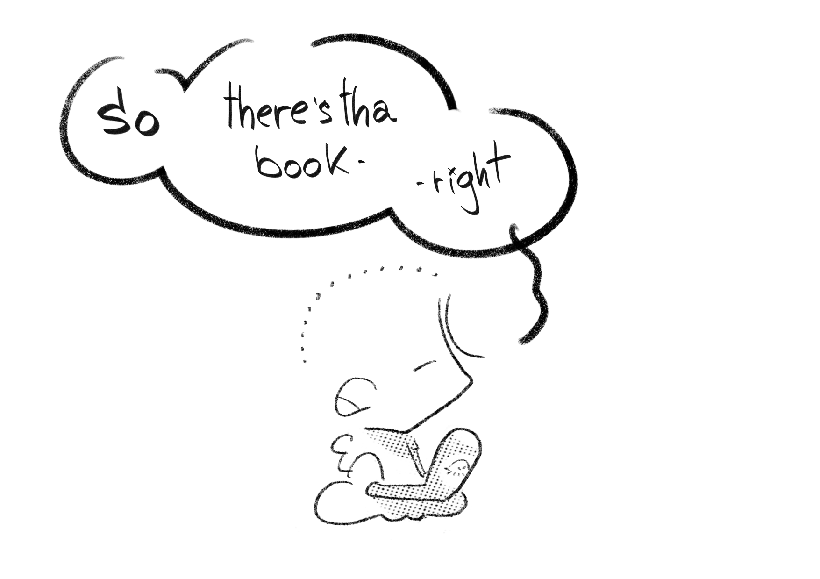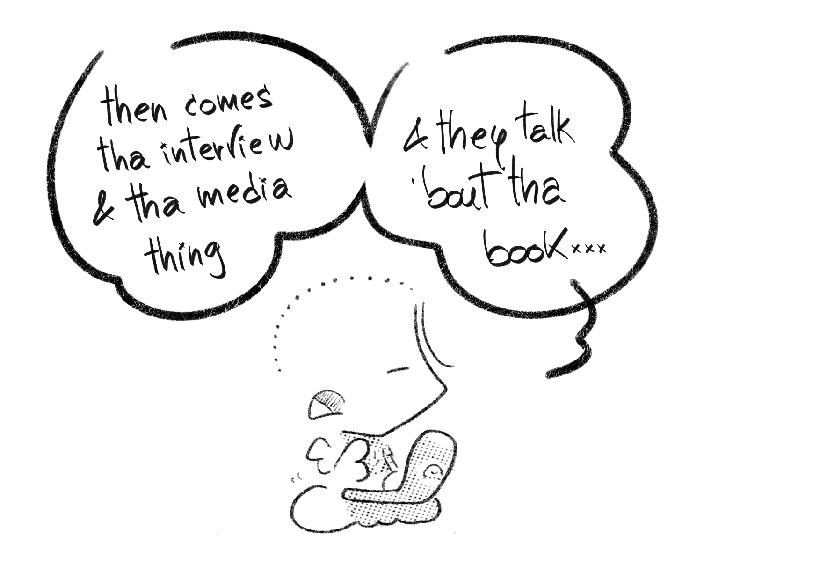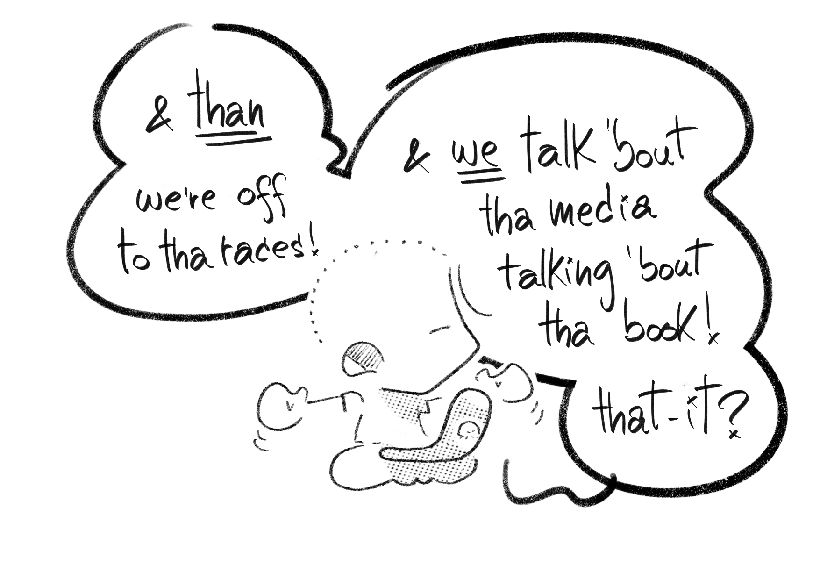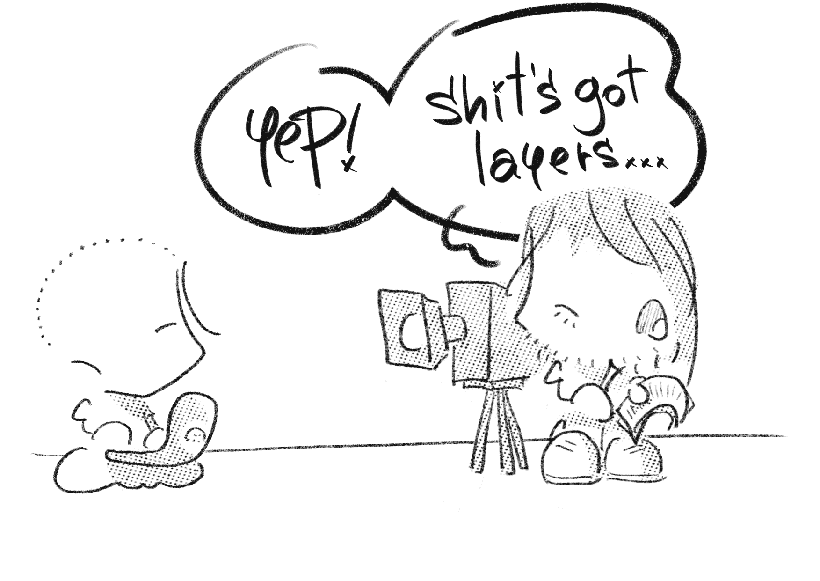in(con)clusivos
Inclusivos, dizíamos. Mas, e aquilo do irresponsável e imaturo: dois em três e em dois dias o TCJ contribui à causa com duas entrevistas tendo por base dois livros. O gist destes onde importa, respectivamente " 'I Wasn’t Writing About the Work I Find Most Valuable': An Interview with Marc Singer" 13 mar 2019 e " 'The Creative Act Shall Always Triumph Over the Death Culture of Capital': An Interview with Matthew Thurber" 14 mar 2019.
I « they're anything but authentic »
Comics critics and fans have been hunkered down in a defensive crouch for too long, half-terrified and half-resentful of the academy's disdain. As a result, team comics, or team comix, has often tried to paper over comics' failings.
in " 'I Wasn’t Writing About the Work I Find Most Valuable': An Interview with Marc Singer" 13 mar 2019
For anyone who has ever been frustrated by the insularity, boosterism, and self-congratulatory enthusiasm of comics and comics studies, Marc Singer's new book is a relief and a joy. From superheroes to alternative comics, from Ware to Satrapi, Singer mercilessly points out all the emperors without clothes, and every sacred cow that is actually a bunch of chickens in a frayed cow suit.
in " 'I Wasn’t Writing About the Work I Find Most Valuable': An Interview with Marc Singer" 13 mar 2019
Exemplo: a propósito de Chris Ware diz-nos que "here is probably the most culturally legitimated comics artist, talking about how illegitimate the art form is in order to increase his own bid for literary respectability" . Tem a nossa atenção.
[Noah Berlatsky] I guess the first question is, why so negative?
[Marc Singer] We weren't doing critical readings that were unflattering to the comics. And I just wanted to open up the argument and put that on the table. We've gotten very good at doing these formal close readings to show when the comic conforms to our values. But we don't always look at the ways in which a comic might run against our values or challenge them or question them.
in " 'I Wasn’t Writing About the Work I Find Most Valuable': An Interview with Marc Singer" 13 mar 2019
There's a common formula in criticism where if you can show that the work itself is participating in a kind of cultural critique, then you've justified its place in the academy, you've justified its place in the academic journals. And you've justified your own work, because essentially at that point all you need to do is draft along behind it.
in " 'I Wasn’t Writing About the Work I Find Most Valuable': An Interview with Marc Singer" 13 mar 2019
Que não vos passe em branco o exercício da justificação auto-realizada. E de onde fazemos ponte à entrevista / livro que o segue: o circulo de artistas cómicos alternativos.
About that whole circle of alternative comics artists, the pathway to literary validation or artistic validation is to show their own marginality. In other words, to show that they aren't just working for a mass audience.
in " 'I Wasn’t Writing About the Work I Find Most Valuable': An Interview with Marc Singer" 13 mar 2019
Pontos a quem adivinha onde vamos a seguir...
II « an enemy from within »
The art world is pretty underground, in a nontraditional underground way. It’s this closed system, people are reactive within their community. They’re not looking to other media.
in "'The Creative Act Shall Always Triumph Over the Death Culture of Capital': An Interview with Matthew Thurber" 14 mar 2019
Cruzar os media com BD é ponto forte por aqui. Vários take aways dessa entrevista que valem cada um por si como blurb isolado, mas um quadro maior sobressai das suas partes. No seu próprio mérito —
in "'The Creative Act Shall Always Triumph Over the Death Culture of Capital': An Interview with Matthew Thurber" 14 mar 2019
- [Austin English] You can buy War and Peace in any used bookstore for three bucks.
[Matthew Thurber] You’re not owning the manuscript but you don’t need to own the manuscript. It’s a work of art made in the age of mechanical reproduction. You are owning the same thing that everybody else owns. I think that’s a beautiful thing.- [Matthew Thurber] If you push your work I feel like you enter this pact with all of society in which what they want you to do is sacrifice for them–they want you to give them something.
[Austin English] Is that what the audience wants?
[Matthew Thurber] They want you to die and take all of your stuff and valuate it. They don’t want you to keep going.- [Matthew Thurber] I just think that what universities do and what art programs do is they create basically, an alternate value system that’s not necessarily what people want — people who don’t participate in the market or have given up on the market or can’t find a place in the market wants. They make stronger work, more intense work.
[Austin English] You mean the educators have given up on the market.- [Matthew Thurber] The students are on a cloud of all the pure influences that they’ve had in high school and actually their juvenile work is very amazing, formed by their own limited experiences of life and a huge amount, usually, of fan stuff. Sort of gnarled in a horrible way but usually in a beautiful way.
- When you’re young, you’re like, ‘There are these systems of authority, there are these systems of knowledge and I’m sure if I read the New York Times every day, maybe I’ll would understand the world. Oh and maybe, uh, Kant has something to do with it, right? But as you get older, you’re like, ‘Oh these authorities are on their own shaky ground, possibly making it up as they go along or misunderstanding their own intellectual basis for existing.
- Technical training is empowering and I think owning of the means of production in a Marxist sense is empowering. If you owned a Risograph printer you can make art. You can make your own label. You can put out your own records, press your own records so you can distribute your own stuff, you can have more control over distribution of objects.
- Museums represent a lot of the values of what art was sold, what money paid for, those purchases have to be validated and museums do that. It’s actually hard for me to go to museums. They cost $25. They should–if they were free, sure, I’d be all about museums.
- Comics are democratic. It’s art for the people and it serves a function and I love it. I mean, I love the potential of it. I don’t love the content of hardly any of it. The funny thing is is that as things become more possible to do, they become disempowered more and nobody does it.
E com esse contexto em mente, zeramos dois tópicos para destaque.
Aquilo do 1) $$$ nos artsy.
Related the artist myth and the artist story is the economic factors of the art: How important are those in the art world, right? I am more impressed by somebody who has had to work hard and so, that’s why I’m so depressed when I find out that all the surrealists were all rich kids. Like, the economic story, as part of the artist’s story, or part of the creation of the art—if I found out that so-and-so grew up rich, I’m going to be like, “I don’t care as much, I don’t care.” Because they didn’t do as much. They didn’t have to work as much. There’s twenty other people waiting in the wings, who didn’t have the money, who you don’t really hear about.
We can say that art is the only thing that doesn’t need to be connected to value. It’s useless. It doesn’t have any function, like a bar of soap has. It’s the only thing that should have no connection to money. But over time, it’s completely connected to money in a crazy, super charged way. Art can be filled with any meaning. If it’s blank, you can fill it with money.
in "'The Creative Act Shall Always Triumph Over the Death Culture of Capital': An Interview with Matthew Thurber" 14 mar 2019
... e aquilo da 2) autenticidade.
I'm... not multiverse... not inclusive, what's the word I'm looking for? Everything is fine, everything is good, everything is accepted. The word for anti-value system. Anti-hierarchal value system. All-inclusive. There's a word I'm looking for. I don't care. It's all bullshit anyway. All the things for people who care about valuation or whatever or a hierarchy of this is better than that. It's kind of a moot point to me. There are already these evaluation structures. What I really like are subcultural values. I really like folk evaluation where it's important to a community. Or, for instance, I like philosophic systems where there's an articulation of things, of what's important and why we do things in a certain way. Some weird belief system that needs to flourish. It can't really flourish if you're like, "We want this or this in the museum." Who fucking cares? Develop your own weird canon.
in "'The Creative Act Shall Always Triumph Over the Death Culture of Capital': An Interview with Matthew Thurber" 14 mar 2019
OS POSITIVOS: we're getting there... slowly but surely.
The bubble of the art world just needs to pop. But you can't teach people to have a desire to learn. Why aren't people more curious?




